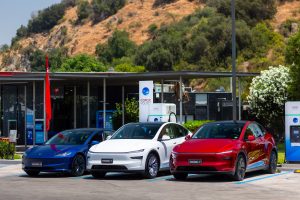
Codelco Leads Plan to Promote Lithium-Based Technologies

Last April, Chilean authorities appointed the mining company Codelco as the head to lead negotiations to promote the National Lithium Strategy.
The state-owned company informed that it had created two subsidiaries to attend to the recently entrusted lithium business, in the midst of the government’s plan to increase control over the sector.
Through a press release, Codelco officially announced the creation of “Salares de Chile SpA“, which will seek to consolidate the activities of Codelco’s lithium companies, while “Minera Tarar SpA“, its first subsidiary, will focus exclusively on the operation in the Salar de Atacama, including a possible association with the private companies currently operating there.
Related content: Epiroc and Codelco Working on the First Electric Charger in South America
Operation Details
According to information released by Reuters news agency, the parent company Salares de Chile will have as president the same Head of Codelco’s board of directors, Máximo Pacheco, and as Vice-president, the Director Eduardo Bitrán, who was already in charge years ago of negotiating changes in SQM and Albemarle‘s contracts, when he headed Corfo‘s development office.
Pacheco and Bitrán will also hold the same positions on the board of Minera Tarar. The government’s plan contemplates that the State will have a majority participation in all projects considered strategic.
Economy Minister Nicolás Grau said in an interview with Reuters that they hope to close negotiations with the operators in the Salar de Atacama before the end of the government’s term, which expires in March 2026.
The day before, Chile’s SQM said it expects to start lithium talks with Codelco in the coming weeks.
Electric Mobility Contributions
Codelco is a key player in the massification of electromobility in Chile.
The largest fleet of electric buses in the Chilean mining industry began operating during the second half of 2022, in line with the decarbonization commitments of the world’s leading copper producer.
A total of 155 buses were incorporated, more than 100 of them manufactured in Chile, which do not generate direct emissions and transport workers from important regions such as Chuquicamata, Andina and El Teniente.





